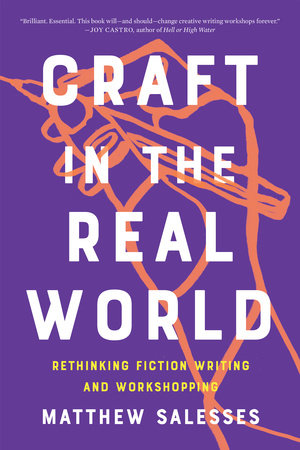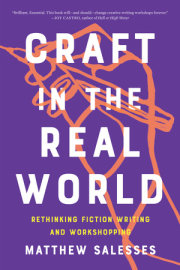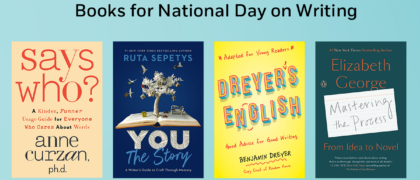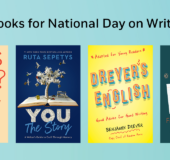An NPR Best Book of the Year
An Esquire Best Nonfiction Book of the Year
An Electric Literature Best Book of the Year
"Salesses is clearly a generous instructor, willing to share ideas for syllabus design, grading techniques and writing exercises. He brings to this work many years of experience as a writer and professor, along with palpable frustration at what he has witnessed or endured in these roles . . . Craft in the Real World is a significant contribution to discussions of the art of fiction and a necessary challenge to received views about whose stories are told, how they are told and for whom they are intended." —Laila Lalami, The New York Times Book Review
"A real eye opener . . . It unpacks the seemingly ‘universal’ lessons we learn about what makes fiction good to reveal how whiteness and maleness have shaped those values." —Kumari Devarajan, Code Switch, NPR
"This book is for any engaged reader, as it illustrates the impact of dominant cultural narratives on how we create and judge fiction . . . Delivered epiphany after epiphany." —John Warner, Chicago Tribune
"Salient and instructive . . . Writers and readers alike stand to benefit from Salesses’s insights into literary production and the insipid ways in which the creative industries perpetuate milquetoast, dominant-culture artistic production." —Jennifer Schaffer, The Nation
"In this firmament-shattering examination of how we teach creative writing, Salesses, a novelist and professor, builds a persuasive argument for tearing up the rulebook. Tracing the traditional writing workshop to its roots in white, male cultural values, Salesses challenges received wisdom about the benchmarks of 'good' fiction, arguing that we must reimagine how we write and how we teach. Only then will our canon and our classrooms be the inclusive, expansive spaces we want them to be." —Adrienne Westenfeld, Esquire, A Best Book of the Year
"This book has quickly become a classic, and rightfully so . . . Essential reading for anyone who wants to write." —Rachel Krantz, BuzzFeed
"A call for revolution . . . For those interested in teaching creative writing, particularly through an anti-racist lens, Salesses provides not only the what and the why but the how. His book is a compendium of essays, enumerated thoughts on craft, a glossary of redefined craft terms, a catalogue of alternative workshop models, sample syllabus language, writing and revision exercises, and other forms—the full generosity of an experienced teacher saying, 'Here, you’re welcome to everything I have.'" —Keri Bertino, BOMB
"An analytic investigation into the racialized history of craft and the ways BIPOC, LGBTQIA+, and other underrepresented voices are erased in creative writing workshops . . . An essential read to any writer or creative writing instructor, regardless of genre . . . Craft in the Real World feels like a literary microcosm for the current global state of affairs. There is the sensation that readers are at once learning and unlearning, doing and undoing . . . It encourages writers, readers, and teachers to get uncomfortable in order to create more inclusive realities." —Candace Eros Diaz, CRAFT
“Thoughtful and bold . . . Necessary reading for aspiring writers—and for anyone seeking to address systemic bias.” —Mahnaz Dar, Library Journal, A Best Book of the Year
"The world has changed, and the writing workshop must catch up. An essential addition to the bookshelf of anyone interested in creative writing, Salesses’ text provides a compassionate approach sure to bring a new generation of authentic voices to the page." —BookPage (starred review)
"This book is a stunning conflagration, and I wish I had it with me for the past twenty plus years of navigating writing workshops, both as student and teacher. It is a blueprint for a way forward to build better writing programs, and thus a new kind of writer and teacher who can imagine beyond a structure that often hurt them and left them in need of repair . . . Salesses has offered both a torch to light the fire, and a safe path to the new world that we can now start to build." —Neelanjana Banerjee, The Millions




